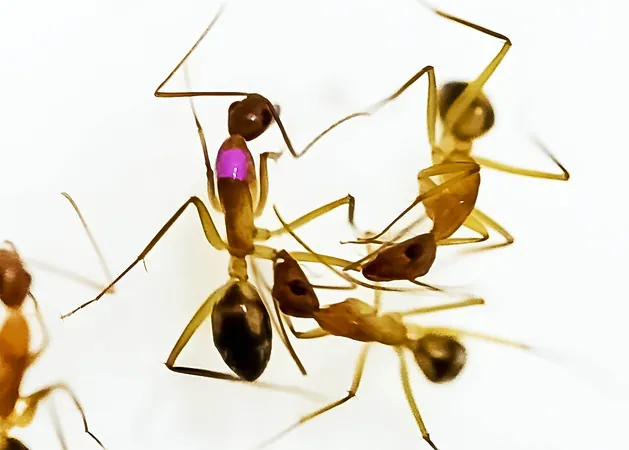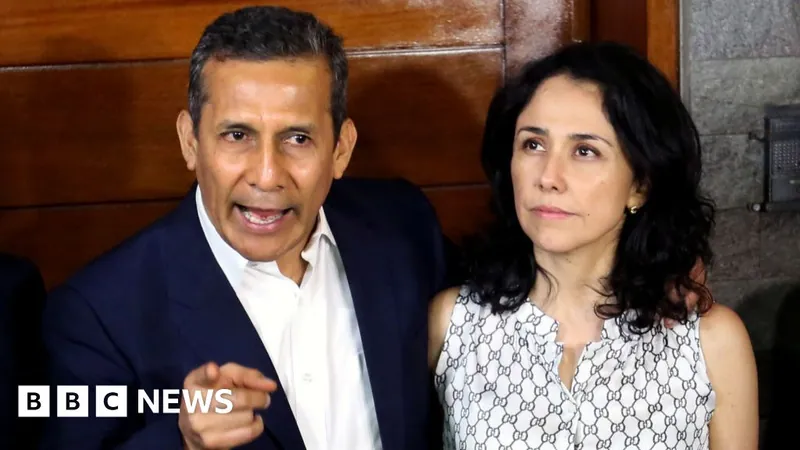
Incredible Ants: The Only Other Species Performing Life-Saving Surgeries Besides Humans!
2025-04-12
Author: Ying
When we think of life-saving medical practices, humans usually come to mind. However, recent research reveals that some ants have developed their own fascinating medical techniques!
Ants: Nature's Little Surgeons
A groundbreaking study published in *Current Biology* sheds light on Florida carpenter ants (Camponotus floridanus) and their extraordinary methods for treating severely injured nestmates.
These industrious insects have been observed performing surgeries like amputations and cleaning wounds to save their companions. This discovery is nothing short of astounding!
The Science Behind Ant Amputations
According to Erik Frank from the University of Würzburg, the ants' treatment decisions depend on the risk of infection and the extent of muscle damage. Remarkably, they can systematically evaluate injuries to determine the best course of action.
"What makes this amputation behavior exceptional is that it is the only known instance in the animal kingdom where one individual systematically amputates another's limb," Frank explains.
While a different ant species, Megaponera analis, uses a specialized gland to release antimicrobial compounds, Florida carpenter ants take a more hands-on approach. They rely on their mouthparts for cleaning wounds and may remove entire limbs when necessary.
Different Wounds, Different Treatments
The research indicates that the type of injury dictates the ants' medical response. For femur injuries, cleaning precedes amputation, achieving a success rate of about 90-95%. In contrast, tibia injuries are treated with cleaning alone, yielding a survival rate of around 75%.
This careful approach significantly enhances their chances of survival compared to untreated ants.
Meet the Florida Carpenter Ants
Also known as Camponotus floridanus, these ants are easily recognized by their reddish-brown bodies. Unlike typical carpenter ants that chew through wood, they prefer to inhabit existing cavities like tree hollows.
These social creatures communicate using chemical signals called pheromones to coordinate foraging and defense, living in colonies that can number in the thousands.
A Remarkable Social System
The ability of ants to perform medical procedures raises intriguing questions about the coordination within their complex social structures. Frank notes that their skills, whether diagnosing infections or performing surgeries, rival human medical systems.
Notably, this behavior appears innate rather than learned, suggesting that certain ants develop these skills at specific life stages.
What’s Next for Ant Research?
Researchers are now eager to discover if other closely related ant species also employ similar amputation methods. Videos showing the injured ants willingly presenting their limbs for treatment demonstrate an extraordinary level of cooperation.
This study sparks fascinating inquiries about pain perception in ants, as the injured ants remain conscious during surgeries.
In summary, this groundbreaking research not only highlights the remarkable adaptability of ant societies but also opens the door for further understanding of how insects maintain collective health while managing individual well-being.




 Brasil (PT)
Brasil (PT)
 Canada (EN)
Canada (EN)
 Chile (ES)
Chile (ES)
 Česko (CS)
Česko (CS)
 대한민국 (KO)
대한민국 (KO)
 España (ES)
España (ES)
 France (FR)
France (FR)
 Hong Kong (EN)
Hong Kong (EN)
 Italia (IT)
Italia (IT)
 日本 (JA)
日本 (JA)
 Magyarország (HU)
Magyarország (HU)
 Norge (NO)
Norge (NO)
 Polska (PL)
Polska (PL)
 Schweiz (DE)
Schweiz (DE)
 Singapore (EN)
Singapore (EN)
 Sverige (SV)
Sverige (SV)
 Suomi (FI)
Suomi (FI)
 Türkiye (TR)
Türkiye (TR)
 الإمارات العربية المتحدة (AR)
الإمارات العربية المتحدة (AR)